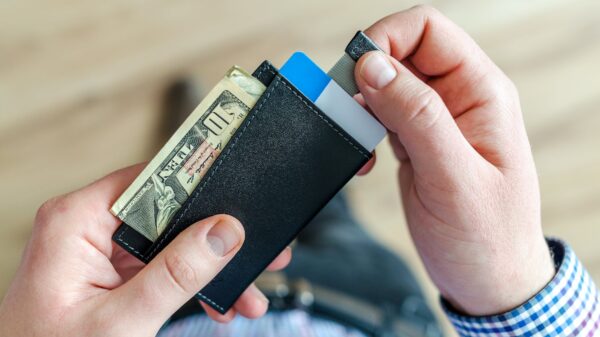No one wants to think about the worst-case scenario, but when it comes to your finances, it’s essential to be prepared. Picture this: unexpected car repairs, a sudden job loss, or an unforeseen medical emergency. Without the Importance of emergency funds in place, these situations can easily turn into financial disasters that take years to recover from. In this blog post, we’ll dive into the importance of having an emergency fund and why every single person needs one. Trust us – you won’t want to miss out on this valuable information!
What is an emergency fund?
If you don’t have an emergency fund, now is the time to start one. An emergency fund is a savings account that you only use for unexpected expenses, like a car repair or a medical bill. It’s important to have an emergency fund because it gives you a financial safety net in case of unexpected expenses.
Building an emergency fund can seem daunting, but it doesn’t have to be. Start by setting aside a few dollars each week or month. Then, when you have enough saved up, open separate savings account for your emergency fund so you’re not tempted to spend it. Once your account is established, make sure to keep adding to it so you’re prepared for anything life throws your way.
No matter how much or how little you have saved up, it’s important to have some money set aside for emergency expenses. Having an emergency fund will give you peace of mind and make handling unexpected events much easier.
Benefits of having an emergency fund
An emergency fund is an important part of financial security. It is a savings account that is set aside for unexpected expenses or emergencies.
Emergency funds can help you cover unexpected costs such as medical bills, car repairs, or home repairs. They can also help you cover your living expenses if you lose your job or have another financial setback.
Emergency funds give you peace of mind knowing that you have money set aside to cover unexpected costs. They can also help you avoid debt by paying for expenses with cash instead of using credit cards.
Building up an emergency fund takes time and discipline, but it is worth it. Start by setting aside a small amount of money each month to start your fund. Then, continue to contribute to your fund until you have reached your goal.
Having an emergency fund can also provide financial security if you ever find yourself in a difficult situation. Emergencies can happen at any time and it’s important to be prepared.
How to start building your emergency fund
Your emergency fund should be easily accessible, so you can withdraw money if you need to. The best place to keep your emergency fund is in a savings account at a bank or credit union. You can also keep it in a short-term bond fund or a money market account.
Most experts recommend that you have three to six months’ worth of living expenses saved in your emergency fund. So, if your monthly expenses are $2,000, you would need to have $6,000 to $12,000 in your emergency fund.
The best way to start building your emergency fund is to set up automatic transfers from your checking account to your savings account. You can set up weekly or bi-weekly transfers for an amount that you can comfortably afford. As your income increases, you can gradually increase the amount of money that you transfer into your savings account.
Another option is to put any extra money that you have towards building up your emergency fund. For example, if you get a bonus at work or some extra cash for your birthday, you can add this money to your savings account.
Once you have built up your emergency fund, it’s important to keep it well-stocked so that it can cover any unexpected expenses that may come up. Periodically review your budget and make sure that you are still setting aside enough money each month to contribute to your emergency fund.
Having an emergency fund is one of the best ways to ensure that you can cover unexpected expenses without having to turn to debt. With careful planning and savings, you can build a robust emergency fund that will bring peace of mind and financial security.
Budgeting tips for saving money for an emergency fund
If you’re like most people, you probably don’t have much money saved up for an emergency. That’s why it’s so important to start budgeting for an emergency fund as soon as possible.
Here are a few budgeting tips to help you save money for an emergency fund:
1. Cut back on unnecessary expenses. Take a look at your spending habits and see where you can cut back. Do you really need that daily latte? Could you pack lunch more often? Little changes can add up to big savings over time.
2. Automate your savings. Set up automatic transfers from your checking account to your savings account so you’re automatically saving each month. This way, you won’t be tempted to spend the money instead.
3. Earn extra income. If your budget is tight, look for ways to bring in some extra cash. You could get a part-time job, sell items you no longer need, or take on freelance work.
Saving money for an emergency fund doesn’t have to be difficult – just start small and be consistent. Over time, you’ll build up a nice cushion of cash that will give you peace of mind knowing you can cover unexpected costs if they arise.
Alternatives to building an emergency fund
There are a few alternatives to building an emergency fund. One is to use a credit card with a low-interest rate for emergencies. This can be a good option if you are able to pay off the balance every month. Another alternative is to take out a personal loan from a lender that offers flexible repayment terms. You may also be able to tap into your home equity line of credit or get a cash advance from your employer. However, these options can be more expensive in the long run and should only be used as a last resort.
Finally, you may be able to borrow from family or friends. This should be a last resort as it could damage your relationship if you are unable to repay them.
Conclusion
An emergency fund is an important savings account that can provide peace of mind against unexpected obstacles and expenses. Having enough money put aside to cover any potential crisis will help protect your assets and reduce strain on your budget. Though it may seem daunting at first, establishing an emergency fund doesn’t have to be complicated or expensive. With a little bit of planning and preparation, anyone can create a successful financial safety net for themselves or their family with the simple steps outlined in this article.







